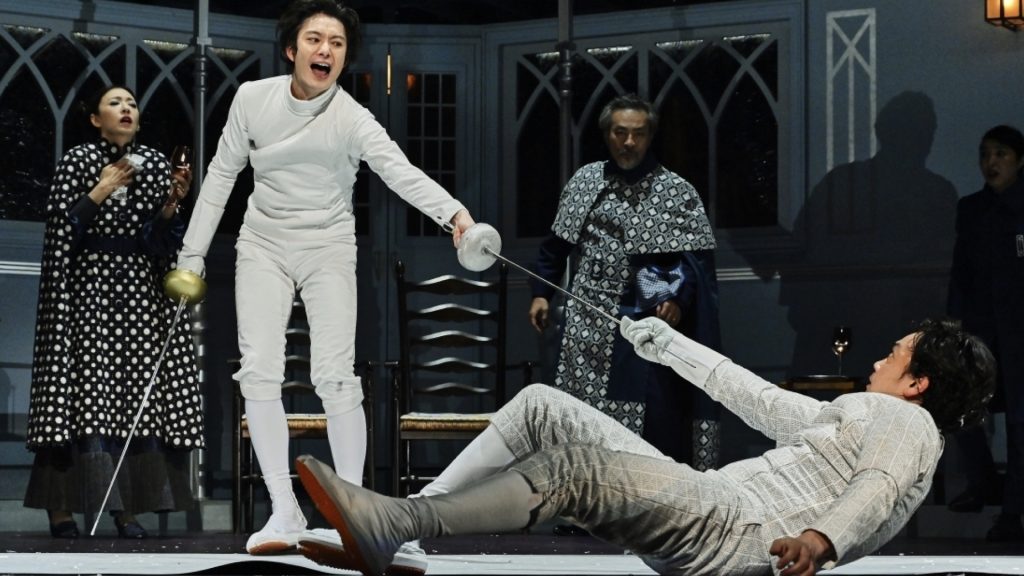
SNA (Tokyo) — Suit-clad office workers, long-haul truck drivers, ramen shop food preparers, fake priests at faux churches, insurance solicitors, rice paddy farmers, maid cafe servers, security guards, nurses, train conductors, schoolteachers, nursery school caregivers, bank tellers, garbage collectors, plumbers, paralegals, social workers… How many megabytes would it take to list all jobs that occupy the days of the workers who make our society run?
Riddle me this: What job permits you, during a single lifetime, to experience any job on the planet?
Give up? Acting. An actor on stage or screen can do any job that exists and even any job that does not exist. On stage and for a limited time only, before the final curtain, you can become a queen or a serial killer.
The Japanese word rodosha is often translated as “laborer,” but the word “worker” better reflects the ubiquity of its usage. For labor law, however, the word rodosha should on most occasions be translated as “employee,” since it delineates a relationship with management, rather than one’s position in society.
In this piece, I will use rodosha, meaning “employee protected by the various labor laws in Japan.”
Is a stage actor a rodosha? Does she enjoy all protections accorded to a rodosha under labor law?
A recent court case may provide the answer.
Defendant Air Studio Company produces stage plays, films, studio management, handles celebrities, and runs restaurants. The theater troupe Air Studio stages performances nearly each week.
The plaintiff signed a contract and joined the troupe at age 22, dreaming of becoming an actor. In addition to performing on stage, the plaintiff also worked on sets, props, sound, lights, and other tech crew duties–all unpaid. After four years, the firm began paying him a ¥60,000 (US$540) “support stipend” each month. He devoted himself to acting and backstage work without a break, clocking up to twelve hours a day, with no time to eat properly. He fell into financial hardship. At the end of his rope and no future in sight, he left the troupe in 2016.
Then, he sued the company for back wages for his performances and tech crew work. The question arises: was he an employee? Was his work rodo, deserving of wages as stipulated in the Labor Standards Act?
On September 4, 2019, Tokyo District Court ruled that his backstage activities were indeed rodo and in engaging in those activities, he was indeed a rodosha, protected by labor laws. But the court did not recognize his acting on stage as the work of an employee of the company.
Both sides appealed the split verdict to the Tokyo High Court. The plaintiff insisted that his acting too was labor protected by labor law, while the defendant claimed that none of his various duties could be characterized as wage labor performed by an employee (rodosha).
Almost a year later, on September 3, 2020, the High Court ruled in favor of the actor, recognizing all the work, including performing on stage, as labor subject to wage regulations.
The lower court had said that acting on stage was an optional part of his job and that he was free to accept or refuse. Freedom to accept or refuse is a key principle that determines rodosha status in Japanese courts.
The appellate court agreed that the actor could refuse to act on stage with no apparent disadvantageous repercussions, but noted that “one joins a theater troupe in order to act on stage, making refusal inconceivable under normal circumstances. The troupe members prioritized completing the tasks received from the defendant and had no realistic option other than to comply with orders. Thus, they cannot be said to have had the right to accept or refuse.”
The Tokyo High Court concluded that the job fit the definition of a rodosha in Article 9 of the Labor Standards Act and ordered the defendant to pay unpaid wages of ¥1.85 million (US$16,670).
This verdict sent shock waves through the Japanese theater industry, where unpaid apprenticeships have always been the norm. Ripples had spread throughout the industry even with the lower court’s ruling that backstage work was… well… work. But the judge’s ruling that even acting on stage was subject to wage regulations terrified the industry.
We labor law academics have always considered anyone who must follow orders–regardless of the name of the job–as rodosha, but indignant business representatives asked if the court is trying to destroy the Japanese theater industry, and predicted the extinction of all theater troupes, other than giants such as Shiki Theater Company.
It’s fair to say that those pursuing an acting career often struggle with no money but abundant aspiration. Masato Sakai often speaks on television about how he dropped out of college to found his own theater troupe, only to have to string together part-time jobs for a decade as this theater attracted no audiences. He laughs while recounting how he resorted to eating wild dandelions when he was flat broke.
He is not alone–many successful actors share similar experiences.
Many might feel some resistance to this verdict, since this is a world actors choose willingly to dive into. Why should they be counted as an ordinary rodosha? If they are rodosha, then they are entitled to job security and cannot be fired without a darn, good reason.
Yet, actors usually must audition to get parts in a world of cutthroat competition with few cast.
I understand this sentiment for what it’s worth. At the same time, I oppose settling for some sort of extraterritoriality that deprives actors of all labor law protections. While considering the special nature of the work of an actor, we must also ensure an environment that enables them to live lives befitting of human beings.
This article was written by Hifumi Okunuki, and originally published by the Shingetsu News Agency (SNA).


